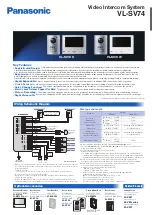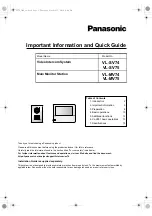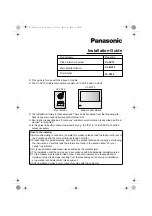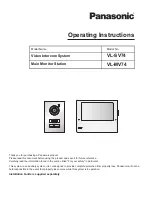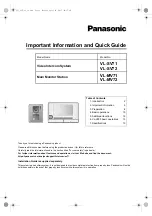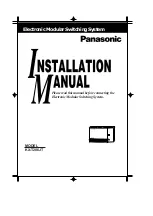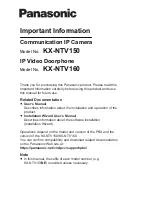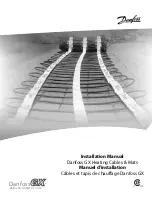
English
66
Pompes Salmson 05/2015
CAUTION! Risk of damage to property!
Do not hold the pump by the motor/module when tightening the screwed con-
nections. Apply the wrench surfaces to the suction/pressure port instead.
• Check the threaded pipe unions for leaks.
7.1.2 Installating a flanged pump
Installation of pumps with combination flange PN6/10 (flange-end pumps from
DN32 up to and including DN 65) and flange-end pumps DN80.
WARNING! Risk of injury and damage to property!
The flange connection can be damaged and develop leaks if the pump is not
installed correctly. There is a risk of injury and damage to property due to hot
fluid escaping.
• Never connect two combination flanges to each other!
• Pumps with combination flanges are not suitable for operating pressures PN16.
• The use of securing elements (e.g. spring rings) can result in leaks at the
flange connection. They are therefore not permitted. The washers supplied
(Fig. 3, item 1) must be inserted between screw heads / nut heads and the
combination flange.
• The permissible tightening torques listed in the table below must not be
exceeded, even if screws of higher strength (
≥
4.6) are used, since otherwise
splintering can occur at the edges of the long holes. This causes the screws
to lose their preload and the flange connection can become leaky.
• Use screws of sufficient length. The screw thread must protrude at least one
thread turn beyond the nut (Fig. 3, item 2).
Pump type
Width across flats [mm]
Width across flats [mm]
Suction port
Pressure port
Siriux 25-30(40, 60, 65)
36
36
Siriux 32-30(40, 60, 65)
36
36
Siriux 32-90
41
41
DN 32, 40, 50, 65
Nominal pressure PN6
Nominal pressure PN10/16
Screw diameter
M12
M16
Strength class
4.6 or higher
4.6 or higher
Permitted tightening torque
40 Nm
95 Nm
Min. screw length for
• DN32/DN40
55 mm
60 mm
• DN50/DN65
60 mm
65 mm































